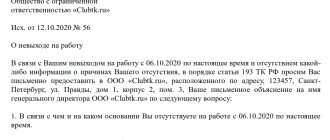Remote work is a new form of labor relations in Russia. There are many questions regarding its design, regime, and rights of remote workers from both applicants and employers.
We have prepared an article that describes the features of remote work from a legal point of view. If you want to find such a job or hire remote employees, be sure to read the article to the end. You will learn about all the nuances and your rights, as well as pitfalls.
What is remote work from the point of view of the Labor Code of the Russian Federation?
Remote work means that the employee performs his duties not on the employer’s premises and uses the Internet to work and communicate with management. In practice, this means that he can work from home, a cafe, coworking space or other place, although there are restrictions here.
For example, it is now popular to recruit remote operators for call centers. A prerequisite for employment is the ability to make calls in a quiet place.
Relations between an employee and an employer are regulated by the norms of the Labor Code of the Russian Federation, namely main 49.1. A contract for remote work can be permanent or fixed-term (concluded for a certain period, for example, one year).
Remote work allows you to hire talented employees from any region, reduce office rental costs and other costs, and allow employees to find profitable work without having to move to another city, for example, Moscow.
Legislative regulation of the labor process
Legislation in the form of Chapter 49.1 of the Labor Code of the Russian Federation allows for such a structure of relations between the parties, obliging them to draw up an appropriate agreement. Its provisions are related to working conditions and immediate circumstances. They concern:
- Performing work duties outside a location established and controlled by the organization;
- A citizen does not have to appear at the company’s location every day. Usually his presence takes place on certain days (planning meetings, meetings);
- The applicant independently controls the work and rest schedule, distributing time at his own discretion;
- Even taking into account the remote format, the amount of work cannot be excessive, putting the employee in a situation in which the duration (established by law) of working hours is exceeded;
- The owner of the tools can be either the employee himself or his employer. In the first case, the citizen is compensated for the costs of wear and tear and repairs;
- A separate clause stipulates the procedure for transferring tasks and performance results;
- The agreement specifies management's obligations regarding occupational safety and health care. We are talking about instruction and control of the workplace. That is, the responsible representative of the organization has the right to visit the employee and check under what conditions he performs his duties;
- The document may also contain separate provisions regarding dismissal.
As noted above, there is home-based and remote work organization. The difference is that in the first case the employee works from home. This places an obligation on him to be there during working hours. Distance employment does not imply any requirements for the location of the employee. He only needs to cope with his direct responsibilities. Often the distance form is a part-time job.
Remote, remote and home work: what's the difference?
Home work and remote work are official, enshrined in legislation
definitions. According to the Labor Code, home-based work is performed at home on the basis of a concluded contract (Article 310 of the Labor Code of the Russian Federation). Remote work is work outside the employer’s location and without his constant control (Article 312.1 of the Labor Code of the Russian Federation).
The Labor Code of the Russian Federation does not contain such a concept as remote work, but in fact it is close to the concept of remote work, it is simply a popular name for the same term. But you shouldn’t confuse homework and remote work. From the point of view of the legislator, these are different concepts.
Let's look at the differences between remote and home work in the table:
| Remote work | Home work |
| Performed outside the employer's premises. Interaction is carried out via the Internet (Article 312.1 of the Labor Code of the Russian Federation). | Performed exclusively at home. |
| It is carried out only by the employee personally; third parties cannot be involved. | The work can be performed by both the employee himself and members of his family. |
| The employee can use his own technology and equipment. | Tools and materials are provided by the employer. |
| The form of remote work is actively used to hire IT specialists and representatives of creative professions, but not only. | Involves mostly manual, physical labor. |
| Registration for a job is possible by exchanging documents (contracts, orders, local acts) in electronic form (Article 312.2 of the Labor Code). | The employment contract must be on paper and signed personally by the employee. |
| Information in the work book is entered as agreed. May not be included. | It is necessary to make an entry in the work book. |
| When terminating an employment contract for remote work, the employee’s personal presence is not required. | Personal presence is required when terminating the contract. |
The procedure for interaction between a remote worker and an employer
The procedure for interaction between a remote worker and an employer is provided for in Art. 312.3 of the Labor Code of the Russian Federation, and is also established by local acts and agreements.
The law defines cases when, when exchanging electronic documents, an enhanced qualified electronic signature of the employer and an enhanced qualified (unqualified) electronic signature of the employee are required.
Such signatures are required
upon conclusion, change or termination:
- employment contracts,
- additional agreements to employment contracts,
- liability agreements,
- student contracts for education without interruption or without interruption from work.
Therefore, persons who intend to enter into a contract for remote work should be advised to take care of obtaining a certificate in a timely manner
enhanced qualified electronic signature by contacting an accredited certification center.
In other cases, interaction between a remote worker and an employer
can be carried out using other types of electronic signature or in another form that allows recording the fact that the employee and employer received documents in electronic form.
Important:
each party
is obliged to send confirmation
of receipt of the electronic document from the other party within the period established by local acts and agreements.
To provide mandatory insurance coverage
for compulsory social insurance in case of temporary disability and in connection with maternity, the remote worker submits to the employer in one of two ways
- original documents by registered mail with notification;
- or provides the employer with information about the series and number of the certificate of incapacity for work generated by the medical organization in the form of an electronic document, if the specified medical organization and the employer are participants in the information exchange system for the exchange of information for the purpose of generating a certificate of incapacity for work in the form of an electronic document.
Features of remote work
| Work and rest schedule | The employee can determine his own work and rest schedule, unless otherwise specified in the employment contract (Article 312.4 of the Labor Code of the Russian Federation). |
| What holidays are entitled to a remote worker? |
|
| How is sick leave paid? | Paid on a general basis, upon presentation of the originals of the certificate of incapacity for work (documents can be sent by mail). |
| Compensation for used equipment | At the discretion of the employer. The employment contract may stipulate compensation for personal equipment used by the employee, payment for Internet access, etc. The employer can also provide the employee with the necessary programs, computer and other devices to perform the work. |
| Is a special labor assessment necessary for remote workers? | A special assessment of working conditions is not carried out (Article 3, paragraph 3 of Federal Law-426 of December 28, 2013). |
Labor organization of a remote worker: features
The employer provides the remote worker with the necessary equipment and facilities (Article 312.6).
A remote worker has the right, with the consent or knowledge of the employer and in his interests, to use equipment and facilities owned or leased by the employee to perform his job function.
If the employer sends a remote worker to carry out an official assignment to another locality (to another territory), different from the locality (territory) where the work function is performed, the remote worker is subject to Articles 166 - 168 of the Labor Code of the Russian Federation on business trips.
Hiring for remote work: stages, nuances, how to draw up an employment contract?
Let's figure out how to get a job remotely. There are many nuances to this process that need to be taken into account.
How to hire a remote worker?
Hiring is the same as hiring a regular full-time employee. The only difference is that a remote worker can provide documents in person, electronically or by mail.
If an employee sends documents electronically, they must be signed with an enhanced qualified electronic signature
. When sending by mail, copies of documents must be certified by a notary.
The list of documents that the employee must provide is regulated by Art. 65 Labor Code of the Russian Federation. This list includes:
- Passport.
- Individual personal account insurance number (SNILS).
- Documents on the education and qualifications of the employee (diploma, certificate, certificate).
- Certificate of presence (absence) of criminal record.
A work record book may not be provided, about which the employee makes a corresponding entry in the job application.
The employer may request other documents by agreement with the employee; they are not required to be provided.
Stages of hiring for remote work
- Conclusion of an employment contract (Article 57 of the Labor Code). Below in the article we will tell you what conditions should be specified in this document. The agreement can be signed electronically, but then it is better to exchange paper versions.
- Completing a job application. The application can be made in simple written form addressed to the head of the organization. It lists the documents provided by the employee. On the application, the head imposes a resolution to issue an order for admission.
- Issuance of an order of acceptance. Formed on the basis of the submitted application. The employee is obliged to familiarize himself with the order and has the right to receive a copy of it.
- Familiarization of the employee with local regulations. For example, regulations on business trips, certification, advanced training, trade secrets and others. When exchanging documents electronically, the employee must send a document with a familiarization sheet, which he signs with an electronic signature and sends back. You can also send the acquaintance sheet by mail. In this case, the employee signs it and sends it back in paper form.
We figured out how to hire a new employee to work remotely. Let's find out how to formalize the transfer of an existing employee to this working regime and whether it is necessary to obtain consent for this.
How to transfer an employee to remote work?
Transfer to remote work can occur at the initiative of the employee or employer. In both cases, the employee’s written consent to such changes
.
If the transfer occurs at the initiative of the employer, then the latter is obliged to warn the employee about this in writing at least two months in advance, indicating the reasons for such a decision (Article 74 of the Labor Code).
An employee may refuse to be transferred to remote work. In this case, the company is obliged to offer him other vacancies that correspond to the level of qualifications and pay. If there are no vacancies, then the employee quits (clause 7, part 1, article 77 of the Labor Code).
How to transfer to remote work?
Legally, the transfer is formalized by signing an additional agreement to the previously concluded employment contract, which specifies the relevant changes:
- The nature of the work is set to be remote.
- The place of work is indicated. According to the law, there is no connection to a specific place, but it is better to indicate in the contract the employee’s place of residence or another place where he will perform his duties. The calculation of wages, in particular, the size of the regional coefficient, depends on this.
- Changes regarding working hours. It is better to prescribe the hours during which the employee must work.
- Conditions for the transfer of information, use of personal equipment and compensation for this (if provided).
Who can be transferred to remote work?
The Labor Code does not contain a list of persons who can work remotely. Therefore, from the point of view of the law, any employee can be transferred to this regime, provided that the employee can perform his duties via the Internet.
For example, even officials are now working remotely. Similar innovations have been introduced in the Moscow region.
Is it possible to register a foreign citizen for remote work?
- If a foreign citizen lives in Russia, then you can conclude an agreement with him on remote work.
- If he lives outside the Russian Federation, it is recommended to enter into a GPC agreement. Because if an employee lives abroad, the employer cannot fully fulfill his duties prescribed in the Labor Code of the Russian Federation.
How to specify remote work in an employment contract?
When drawing up an employment contract, there are a number of features that need to be discussed. Also, such documents must contain mandatory conditions, which we list below.
Features of drawing up an employment contract
- According to Art. 312.2 of the Labor Code, when concluding an employment contract on remote work, electronic exchange of documents is possible, but after concluding the contract, the employer is obliged to send the employee a postal message with notification, which will contain a paper copy of the agreement.
- The employer may require the employee to provide copies of documents (passport, documents on education and qualifications, etc.), certified by a notary, by mail.
- A work book for recording work is provided by agreement. In the case of initial employment, it may not start. If an employee wants an entry to be made in the work record, he provides the book in person or by mail with notification.
- If a work book is not provided, the employee can confirm the employment relationship with a contract.
What conditions are mandatory for a remote work agreement?
This issue is regulated by Art. 57 Labor Code of the Russian Federation.
In the case of an employment contract for remote work, it must indicate:
- The nature of the work is remote.
- Type of contract – open-ended or fixed-term (for a certain period). Please note that not all categories of citizens can enter into fixed-term contracts.
- Work and rest schedule. Although a teleworker can decide when to work, the contract may require that the teleworker be present at certain times. In this case, the employee must comply with this requirement.
- Terms of payment and availability of compensation payments. As a rule, remote workers are paid a piece-rate salary, which depends on the number of tasks completed, their complexity and volume. If compensation payments are provided, for example, payment for Internet access or equipment, then the amounts of these payments are also fixed in the contract.
- Providing tools and equipment for work. If the employer provides equipment, software, or access to any services, then information about this should be in the document.
- Deadlines for completing work and providing results, deadlines and reporting format, features of work organization. For example, many companies use task trackers or CRM systems to manage remote workers, where tasks, deadlines for their completion, etc. are recorded.
- Conditions for changing and terminating the contract.
If the organization does not have a template for such an agreement, then one can be drawn up by contacting lawyers.
Temporary remote work at the initiative of the employer: in exceptional cases
Temporary transfer of an employee without his consent
Remote work is possible in the following cases (Article 312.9):
- natural or man-made disasters,
- industrial accident,
- industrial accident,
- fire, flood, earthquake,
- epidemics or epizootics,
- in any other exceptional cases threatening the life or normal living conditions of the entire population or part of it,
- adoption of an appropriate decision by a government body and (or) local government body.
In this case, the employer is obliged:
- provide the employee with the necessary equipment and facilities
or pay the remote worker
compensation
for the use of equipment and facilities owned or leased by him, reimburse expenses associated with their use, as well as
reimburse
the remote worker
for other expenses
associated with performing the labor function remotely;
- if necessary, organize training
for the employee in the use of equipment and tools recommended or provided by the employer.
If the specifics of the work performed by an employee at a stationary workplace do not allow his temporary transfer to remote work at the initiative of the employer, or the employer cannot provide the employee with the equipment and means necessary to perform his work function remotely:
the time during which the specified employee does not perform his labor function is considered idle time
for reasons beyond the control of the employer and employee, with payment for this idle time in accordance with part two of Article 157 of the Labor Code of the Russian Federation, unless a larger amount of payment is provided for in the contracts.
How to quit a remote job?
Dismissal or termination of an employment contract is possible at the request of the employee (Article 80 of the Labor Code) or at the initiative of the employer (Article 81 of the Labor Code). It is possible to terminate an employment contract by agreement of the parties. In each case, written notification to the other party of termination of the contract is required.
A remote worker can submit a resignation letter via email using a digital signature. But judicial practice shows that it is better to exchange applications and orders for dismissal in paper form. Dismissal of a remote worker may be based on the labor code itself, or may be based on the terms of the employment contract. For example: lack of workload, failure to communicate (not on time), etc.
Remote work part-time
Russian legislation allows concluding an employment contract with a part-time remote worker and a fixed-term employment contract. When concluding it, it is necessary to comply with the rules prescribed in Chapter 44 of the Labor Code of Russia, which states that the working time of a part-time employee is half the standard working day. Therefore, the amount of work he does will be half as much.
Vacation is granted at the same time as vacation at the main workplace. Remote part-time work is not covered by the guarantees provided to citizens working in the Far North and students. Termination of the contract requires mandatory notice to the employee 2 weeks in advance if another person is hired to perform the same duties, for whom this work will be the main one.
A team of experienced lawyers at Labor Verification LLC will help you prepare documentation in accordance with the requirements of the law. We also offer such services as legal support for staff reorganization - separately and with comprehensive business support in the form of oral and written consultations, development of a reduction plan, drawing up personnel documentation, control of dismissal and settlement of disputes in the interests of the client. We guarantee a positive result. Leave a request on the website: consultants will promptly contact you to answer all questions.
Where and how to find remote work?
- Check out companies offering remote work positions.
- There are many similar vacancies on Yandex, including vacancies that do not require IT qualifications (suitable for almost everyone). For example, vacancies of a moderator, assessor, secret shopper.
- You can search for vacancies on employment sites, indicating that you are interested in remote work.
- If you need a remote worker, post a vacancy on the service. This is a free site for finding remote workers.
On the Internet, under the guise of remote work, you can find offers from scammers. Therefore, before searching for employers, we recommend reading about scams on the Internet and especially about scam vacancies. This information will help to significantly reduce the risks of finding employment online.
Author: Kadrof.ru (KadrofID: 79032) Added: 12/25/2019 at 18:12
To favorites
Comments (0)
Occupational Safety and Health
When working at a stationary workplace, the employee and the employer have a full range of responsibilities and occupational safety measures.
With an employment contract for remote work, the employer’s responsibilities in this area include:
- Investigation into recording, in accordance with the established procedure, industrial accidents and occupational diseases;
- Fulfillment of instructions from officials of the federal executive body authorized to exercise federal state supervision over compliance with labor legislation and other regulatory legal acts containing labor law norms;
- Compulsory social insurance of workers against industrial accidents and occupational diseases;
- other obligations of the employer to ensure safe working conditions and labor protection established for remote workers during the period they perform their labor functions remotely do not apply.
Order for hiring a remote worker
An order (instruction) for hiring a remote worker is drawn up in the same way as when hiring other workers: in a unified form, for example, in form N T-1 (approved by Resolution of the State Statistics Committee of Russia dated January 5, 2004 N 1), or in a form developed employer. The basis for its publication is the employment contract. The content of the order (instruction) of the employer must comply with the terms of the contract.
In particular, when using form N T-1 in the line “Conditions of employment, nature of work” you need to indicate information about the employee performing a labor function remotely (part 1 of article 68 of the Labor Code of the Russian Federation, clause 1 of article 1 of the Federal Law of 08.12 .2020 N 407-FZ, Instructions for the use and completion of forms of primary accounting documentation for recording labor and its payment, approved by Resolution of the State Statistics Committee of Russia dated 01/05/2004 N 1).
When hiring for remote work (before signing an employment contract), you can familiarize the employee with the internal labor regulations, other labor regulations directly related to his work activities, and the collective agreement by exchanging electronic documents (part 3 of article 68 of the Labor Code of the Russian Federation, clause 2 of article 1 of the Federal Law of December 8, 2020 N 407-FZ).
Information about the work activities of the remote worker is entered into the work book (if it is kept) at his request. He can provide a work book, for example, by sending it by registered mail with notification (Clause 2 of Article 1 of Federal Law No. 407-FZ of December 8, 2020).
Otherwise, the hiring procedure does not differ from the general rules.
It is important to immediately take into account: the employer’s obligations to ensure safe working conditions and labor protection for remote workers are limited (clauses 1, 6, article 1 of the Federal Law of December 8, 2020 N 407-FZ). For more information on labor protection for remote workers, see paragraph 4.3 of this material.
Subject of the employment contract
2.1. An employee is accepted into the Organization for a position - _________ (position name), with a salary of ______ (_________________________________) rubles per month (including personal income tax at a rate of 13%), in addition, by order of the manager, a bonus may be paid based on work results in accordance with the Regulations on bonus amounting to ____ (_____________________) rubles per month (including personal income tax at a rate of 13%).
2.2. The work performed by the Employee under this Agreement is remote work.
2.3. Salary is paid to the Employee every half month on the following dates: the 5th and 20th of each month.
2.4. Salaries, social compensations, bonuses and other similar payments, upon written application of the Employee, may be paid to him by transfer to a special card account for individuals opened in the bank ______ (name of bank) at Tariff ________________ for transactions using bank cards, in the manner prescribed agreement between the Organization and the bank. The employee confirms that he is familiar with the terms of service for bank cards.
- All costs associated with opening a bank account and servicing a bank card are borne by the Organization.
- All costs associated with cash withdrawals are borne by the Employee.
- Upon dismissal of an Employee, if the dismissed Employee wishes to retain the issued bank card, the Bank, at the request of the Holder, reissues the card from a salary card to a card for an individual, the Employee enters into an agreement with the Bank on his own behalf to open a special card account for an individual and provide a bank card for use , while the Employee, at his own expense, pays the Bank the cost of servicing the card in accordance with the Tariffs for servicing bank card holders approved by the bank.
- The Employee, as the card holder, is responsible for the safety of the bank card, funds transferred to the card account, and PIN code information.
- The employee bears all the risk associated with providing incorrect information to the Bank when issuing a bank card.
2.5. Place of work – _______________________________________ (address of the Employee’s location).
2.6. Work in the Organization is the main place of work for the Employee.
2.7. The contract is of unlimited duration.
2.8. The employee is obliged to start work on “__” _____________ 20__.
2.9. The employee is given a probationary period of __ month. If the test result is unsatisfactory, the employer has the right to terminate the employment contract with the Employee before the expiration of the test period, warning him about this in writing no later than three days in advance, indicating the reasons that served as the basis for recognizing this Employee as having failed the test. If the employee passes the test and continues to work, this employment contract is considered concluded for an indefinite period.
2.10. If during the probationary period the Employee comes to the conclusion that the job offered to him is not suitable for him, then he has the right to terminate the employment contract at his own request by notifying the employer in writing two weeks in advance.
Procedure and reasons for transfer
The rules governing the remote performance of official duties in the Russian Federation are provided for in Chapter 49.1 of the Labor Code of the Russian Federation. But it is more often used when they are just formalizing an employment relationship. And how to apply it if it is necessary to reconsider the terms of the employment contract and conclude an additional agreement on the transition to remote work, few people have any idea. There won’t be any difficulties if you understand some of the nuances.
Transfer is possible in two cases:
- at the initiative of the employee;
- at the employer's suggestion.
An employee has the right to submit a written application, drawn up in free form, addressed to the manager with a request for permission to work remotely. If the employer agrees, he draws up an additional agreement to transfer the employee to remote work to the employment contract, issues an order to transfer the employee to remote work, and the person begins to work without coming to the organization’s premises.
The employer can also initiate a change in the terms of the employment agreement if, for example, there are relevant recommendations from government agencies to transfer employees to a remote format, as happened in the case of the coronavirus quarantine. The Labor Code of the Russian Federation states that the employer must notify about a change in working conditions at least 2 months in advance.
IMPORTANT!
Transfer is possible only with mutual consent of the parties. If employees are against it, they cannot be forced to work from home. We will have to keep all the terms of the contracts unchanged. On the other hand, while regulatory authorities recommend transferring staff to remote work, and if the employer is not able to do this, officials will not stop the production process.
When the parties have agreed, the employer issues an order to transfer all (or some) employees to remote work. This should not affect the level of pay unless the job function has changed.
Read more: How to draw up a notice of change in the terms of an employment contract











